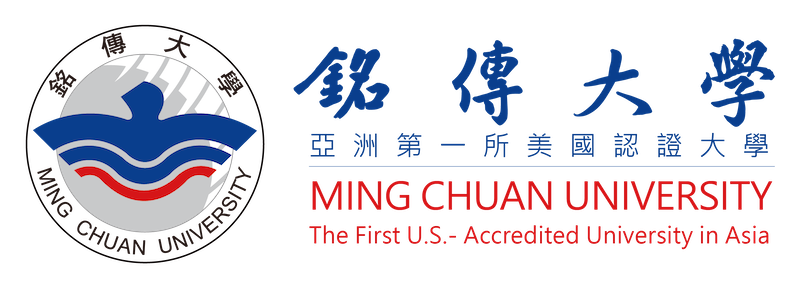- This event has passed.
遲來菩薩 Belated Bosal —朴贊景個展 Park Chan-kyong Solo Exhibition
8 11 月, 2024 @ 10:00 上午 - 29 11 月, 2024 @ 5:00 下午

展覽論述 Exhibition Introduction
朴贊景是一位跨足電影的當代藝術家,長年關注冷戰課題,以及韓國傳統文化與殖民現代性支配關係,特別關於西方強權勢力對於韓國歷史的介入,和薩滿信仰對於韓國人精神結構的影響,這種文化政治的政治性更是他作品持續延展的主要動力。因而思考、批判、對抗殖民關係成為他創作中表露無遺的「態度」。
2000年的《Set》到2007年《權力通道》(Power Passage)與2009年的《停電》(Black Out)以一種在全球冷戰角力的錯視下進行一種南北韓的交互觀看,於2004年獲得韓國愛馬仕藝術獎,而2008年的「新都內」計畫可以視為奠基朴贊景創作軸線的複雜計畫,一方面追索雞籠山的跨教派文化,另一方面則揭露這些經驗和政治抗爭史之間的密切關係,連結萬物有靈、宇宙論、殖民史和創傷療癒等課題。2011年和哥哥朴贊郁(合組Parking CHANce)合作iphone影片《夜釣》獲柏林影展金熊獎,於2014年擔任「媒體城市:首爾雙年展」的藝術總監,提出「鬼魂、間諜與祖母們」為主題,將亞洲的殖民現代性開展為一個即為廣褒的光譜,技術、女性、儀式與跨國翻譯是這一屆雙年展極具特色的主題。2019年的「匯聚」(Gathering)展覽是一個非常龐大而完整的創作計畫,呈現了藝術家對於殖民現代性與解殖的精神道路,《遲來菩薩》是這個展覽計畫的核心作品,可以視為是《市民森林》與「安寧」展覽(2017)課題的延伸。
《遲來菩薩》以福島核災作為一個關鍵時刻,而與摩訶迦葉從靈鷲山趕到拘尸那羅追悼佛陀葬禮的遲到時刻,發生了一種跨時空、跨文化認知的強力交會,影片中利用負片效果與輻射光透視效果的連結,提示出人類的精神所需必須面對越來越顯得無形的暴力與支配力,當摩訶迦葉趕到卻無法開棺瞻仰時,卻見到佛陀伸「腳」行最後的告別,阿難才得進行荼毘(火化)。「遲來」造就了一個深刻的交會時刻:積累了溯往之情、命運的轉折(災難),以及輕輕的一個動作成就一道重重的安慰與傳承。當「遲來」被放回災難與倖存的脈絡時,藝術家讓我們領略到修復作為延續的深度時刻。在朴贊景的創作脈絡中來看待《遲來菩薩》與《小藝術史》的並置,我們將會置身於殖民與衰變的時間迭異,殖性的時間就如同衰變期的時間,都遠超出人們以「遺忘」生成出的樂觀想像。
Park Chan-kyong is a contemporary artist whose work spans film and visual art, focusing on the themes of the Cold War, Korean traditional culture, and the dynamics of colonial modernity. His art critically examines Western powers’ interventions in Korean history and the influence of shamanism on Korean spiritual structures. These cultural-political forces serve as the primary motivators for his continued exploration of colonial relationships through critical analysis and resistance.
From Set in 2000 to Power Passage in 2007 and Black Out in 2009, Park’s works have depicted inter-Korean perspectives under the illusions of the global Cold War. He was awarded the Korean Hermes Prize in 2004. His 2008 Sindoan project represents a foundationally complex endeavor within his artistic trajectory: it both investigates the cross-denominational culture of Mt. Gyejok and reveals the close ties between these experiences and Korea’s political struggles. Through this work, he bridges animism, cosmology, colonial history, and the healing of trauma.
In 2011, Park collaborated with his brother Park Chan-wook under the collective name Parking CHANce to create the iPhone film Night Fishing, which won the Golden Bear at the Berlin Film Festival. He later served as the artistic director for the Media City: Seoul Biennale in 2014, where he introduced the theme “Ghosts, Spies, and Grandmothers”, expanding on the concept of colonial modernity in Asia. The Biennale explored themes of technology, women, ritual, and transnational interpretation.
Park’s 2019 exhibition Gathering was an extensive and cohesive project focused on colonial modernity and decolonial spiritual pathways. At the center of this exhibition was the artwork Late Arriving Bodhisattva, which is viewed as a continuation of his previous works Citizen’s Forest and the 2017 Tranquility exhibition.
Late Arriving Bodhisattva takes the Fukushima nuclear disaster as a pivotal moment, connecting it to the myth of Mahakasyapa’s “late arrival” at Buddha’s funeral in Kusinagara after traveling from Vulture Peak. This cross-temporal, cross-cultural event is highlighted in the film through the juxtaposition of negative images and radiative visual effects, symbolizing the intangible violence and dominance humanity faces. In the narrative, Mahakasyapa arrives too late to view Buddha’s body but witnesses Buddha’s “foot” gesture in a final farewell, allowing Ananda to proceed with the cremation rites. This “late arrival” is thus a profound moment of convergence, embodying yearning, fate’s shifts (disasters), and a comforting legacy passed down through a simple act.
By contextualizing Late Arriving Bodhisattva within disaster and survival, Park invites us to perceive restoration as a deep, continuing moment. Viewing Late Arriving Bodhisattva alongside A Small Art History, we experience the layered temporality of colonialism and decay, where the time of colonial modernity parallels that of radioactive decay, exceeding any optimistic notion of “forgetting”.

